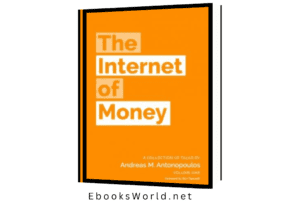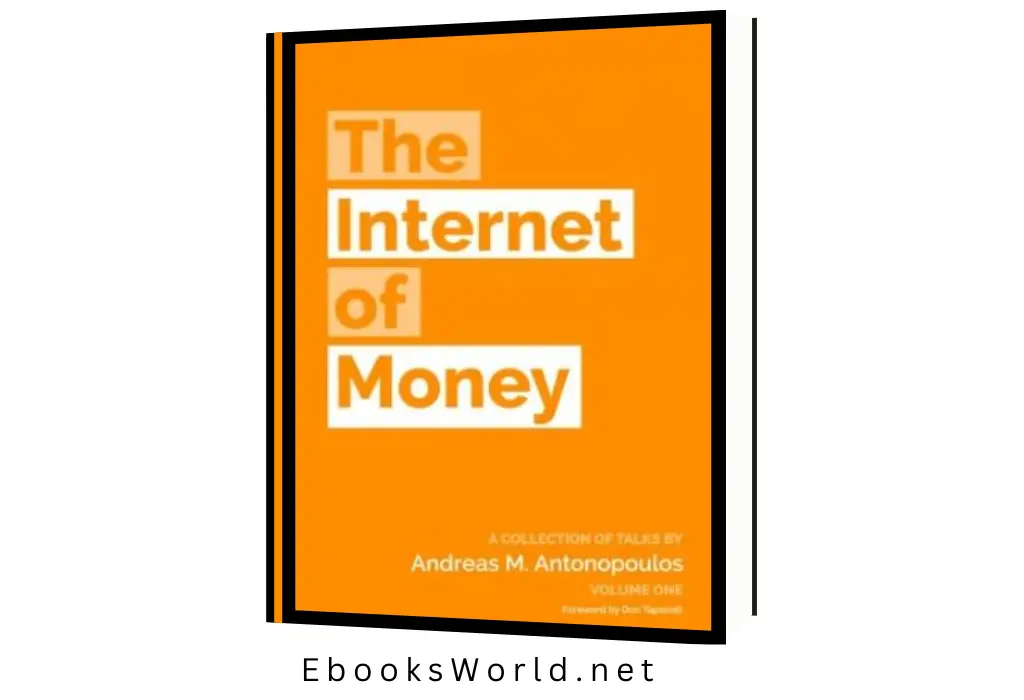The Internet of Money

Ratings
“The Internet of Money” is not a single book but a series of books by Andreas M. Antonopoulos. Each book in the series consists of a collection of his talks, lectures, and essays on the topic of Bitcoin, cryptocurrencies, and the broader implications of decentralized technologies. I’ll provide a summary of the general themes and key concepts covered in Antonopoulos’ series “The Internet of Money.”
Book Series Overview: “The Internet of Money” by Andreas M. Antonopoulos
Introduction:
“The Internet of Money” series is a compilation of Antonopoulos’ speeches and writings, presenting a comprehensive exploration of the revolutionary impact of Bitcoin and blockchain technology. The series is divided into multiple volumes, each focusing on different aspects of cryptocurrency and decentralized systems.
Key Concepts:
1. Decentralization: – Antonopoulos emphasizes the transformative power of decentralization. Traditional financial systems are centralized, controlled by governments and financial institutions. Bitcoin, on the other hand, operates on a decentralized network of nodes, ensuring no single entity has control over the entire system.
2. Blockchain Technology:– Antonopoulos delves into the technical underpinnings of blockchain, the distributed ledger technology that powers Bitcoin. He explains how the blockchain enables trustless, transparent transactions without the need for intermediaries.
3. Bitcoin as Digital Cash:– The series discusses the concept of Bitcoin as digital cash and its potential to revolutionize the way we transact value. Antonopoulos highlights its borderless nature, allowing for global transactions without the need for traditional banking systems.
4. Economic Inclusion:– Antonopoulos explores the potential for cryptocurrencies to bring financial services to the unbanked and underbanked populations worldwide. Bitcoin’s accessibility provides opportunities for economic inclusion, especially in regions with limited access to traditional banking.
5. Security and Privacy: – The series addresses the security features of blockchain technology, particularly in the context of financial transactions. Antonopoulos discusses the cryptographic principles that make Bitcoin secure and the importance of privacy in financial transactions.
6. Challenges and Skepticism: – Antonopoulos doesn’t shy away from addressing the challenges and criticisms facing Bitcoin and other cryptocurrencies. He discusses scalability issues, regulatory concerns, and the evolving nature of the technology.
7. Smart Contracts and Decentralized Applications (DApps): – The series touches upon the concept of smart contracts and decentralized applications, exploring how these programmable features expand the capabilities of blockchain technology beyond simple transactions.
8. The Future of Money:– Antonopoulos speculates on the future of money in a world where decentralized technologies become more prevalent. He envisions a landscape where individuals have greater control over their financial assets and transactions.
Conclusion:
“The Internet of Money” series by Andreas M. Antonopoulos serves as an accessible and insightful guide to the world of cryptocurrencies and decentralized technologies. Through a collection of talks and essays, Antonopoulos covers a wide range of topics, from the technical intricacies of blockchain to the societal implications of decentralized money. The series is a valuable resource for both newcomers seeking an introduction to the space and seasoned enthusiasts looking for deeper insights into the philosophy and potential of blockchain technology.







